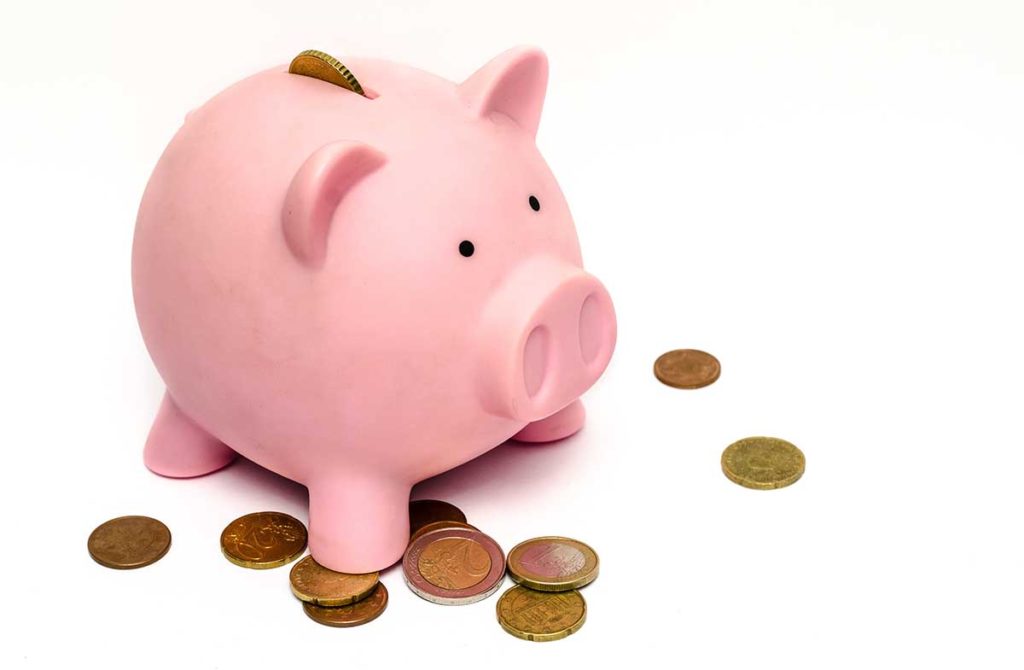Certificates of Deposit (CDs) are a popular financial product offered by most banks and credit unions. When you purchase a CD, you agree to put your money in an account for a fixed period ranging from a few months to ten years. As compensation for your investment, banks and credit unions pay you interests regularly until the CD matures.
There is a wide range of CDs in the market and their interest rates vary greatly. Investors can measure the return on their CDs with the Annual Percentage Yield (APY). A higher APY means more money in your pocket.
For example, if you buy $1,000 of a CD that matures in two years with 4% APY, your investment will be worth $1040 in a year. In the second year, the compounding effect kicks in. The $40 you received last year will also generate a 4% interest. Thus, in the second year, you will receive a total interest of $41.6.
Why do banks and credit unions issue CDs?
Banks and credit unions are in the business of lending money and charging interests. To lend to their borrowers, banks need to first raise funds. One way that banks raise money is by using the deposits in your savings account. However, because consumers can withdraw their deposits at any time, banks bear a risk that the consumer will withdraw after lending out their deposits. To have more certainty, banks offer CDs and pay higher interests in exchange for a fixed deposit time.
CD Interest rates
The interest rate for CDs varies from bank to bank. Because banks use CDs to raise funds for their lending businesses, the interest rate they offer is affected by how much they need the money. Bigger banks with a lot of deposits need less additional funds and offer lower interest rates for CDs. On the other hand, smaller banks will be more generous with interests because they need the money more.
We collected the APYs for one-year CDs from a few major banks in the chart below to help you grasp the general return for CDs.
Online banks and credit unions offer higher APYs because of their low operating costs. Banks and credit unions also frequently put out offers to attract investors. With these promotions, you can get even higher yields. When investing in CDs, it is always a good idea to shop around and compare the interest rates to make sure you get the best return.
The benefits of CDs
As an investment, CDs have some unique benefits that make them an attractive and popular investment.
Superior safety
While there are a few uninsured CDs in the market, most CDs offered by banks and credit unions are insured against losses. This makes CDs some of the safest investments available.
Certificates of Deposit issued by banks are insured by the Federal Deposit Insurance Corporation (FDIC), while CDs issued by credit unions are insured by the National Credit Union Administration (NCUA). If your bank goes bankrupt or loses all its money, the FDIC will cover your losses up to $250,000. This amount includes losses from all your checking accounts, savings accounts, and CDs with this bank. Thus, CDs share the same level of protection as your regular bank deposits.
As long as you verify that the CD is insured, it is as safe as an investment can get.
Another thing to note is that the $250,000 coverage applies to all your deposits with a financial institution. If your total deposit is more than $250,000, the insurance will not cover the excess amount. For example, you might have $250,000 in CD and another $50,000 in your savings account with a bank. When the bank files for bankruptcy, you will only receive $250k back from the insurance.
Fortunately, you can increase your coverage by depositing your money with more than one bank. The FDIC coverage applies to each insured financial institution you have deposits with. If you have two CDs from two different banks, the insurance will cover up to $250,000 for each bank. When you have a large amount of money in deposits, spread out the deposits with different insured banks to increase your protection.
Better returns than savings accounts
Compared to putting your extra cash in a savings account, buying CDs can boost your returns without additional risks. The interest rate on a savings account is close to zero nowadays but for a one-year CD you can get over 2% APY as the chart below shows.
Help you stick to saving
The strict maturity and penalty for early withdrawal on CDs could be an added benefit to some investors. With the early withdrawal penalty, investors are less inclined to withdraw from CDs unless they absolutely need the money. This provides more incentive to save and keep the money growing.
For investors who need motivation and discipline, the penalty can help you stay on course and reach your saving goals faster.
CDs V.S. Treasuries
US treasuries are another ultra-safe investment option. Historically, the yields for CDs and treasuries are often comparable. In 2019, the yield from CDs is much higher than treasuries, leading more investors to put their money into CDs.
When CD and treasury yields are similar, this comparison is slightly more complicated. First, the yield of CDs varies by banks and the amount you save. Larger investment will get a higher CD interest rate but the treasury yield doesn’t change based on the size of your investment.
Additionally, interest income from treasuries is exempt from state and local taxes while income from CDs is fully taxable by the federal and local governments. If you have high state tax obligations, you should calculate the actual yield for each investment after tax. Consequently, the comparison between these two has to made on a case-by-case basis when interest rates are similar.
Risk factors
High inflation
With federal insurance, CDs are a very safe investment option. That being said, deposit insurance only guarantees that you would not lose your principal when the financial institution goes bust. CDs are still vulnerable to a risk factor that almost all fixed-income products suffer from – inflation risk.
Because the interest rates for CDs are fixed, your investment grows at a constant rate. However, if inflation exceeds the interest rate on your CDs, the buying power of your investment will actually decrease because of the high inflation. For example, you just purchased a one-year CD with a 2% interest rate. However, if inflation grows by over 2% yearly, your money actually buys less stuff each year. Thus, for CD investors, inflation is a major factor to consider when investing.
Interest rate risk
With fixed interest rates, CD investments are also exposed to interest rate risk. When the interest rate rises, banks will offer new CDs with higher returns. However, old CDs still pay the same interest. As a result, investors holding old CDs are missing out on higher rates. On the flip side, if the interest rate decreases, your CDs will still generate the same return and it is likely to be higher than the new CDs.
The interest rate risk is bigger for long-term CDs. Because long-term CDs’ interest rates are fixed for longer periods, there is more risk for the interest rate to increase before maturity.
Early withdrawal penalty
Money invested in CDs is supposed to be locked away until maturity. However, investors can still access the money if they need cash. Banks and credit unions charge investors a penalty when they withdraw early. Each CD issuer has its own penalty rules, but generally longer-termed CDs charge more penalty for early withdrawal.
Generally, the penalty for a particular CD is fixed regardless of when you withdraw the money. For example, the penalty for a 12-month CD issued by Capital One is three months of interest, regardless of how long you have invested for when you withdraw. If you withdraw after one month, you will pay the bank three months of interest and suffer a loss because you haven’t received enough interest to cover the penalty. However, when you withdraw after three months, you will still pay the same penalty but now can cover the penalty with the interests received.
How should I use CDs?
Emergency fund
An emergency fund is the money that you stack away for rainy days. You should have enough to cover six months of expenses just in case. Because emergency funds are only supposed to be used during emergencies, CDs can be a good way to invest this money. Unlike a savings account, CDs offer higher interest rates while still guaranteeing the security of your money. When you really need the money, you can always get it back after paying a penalty. The penalty also prevents you from making unnecessary withdrawals.

It is better to put your emergency fund in short-term CDs. This allows you to withdraw it after it matures. Short-term CDs also have lower penalties that can be covered more easily by the interest.
Conservative investment
One of the best features of CDs is their security and predictable income. If you are a conservative investor who prefers low-risk investments, CDs can be a great option for you. With FIDC insurance, CDs carry virtually zero credit risk. Additionally, because the interest rate is fixed, you know exactly how much money you will receive and when.
Diversification
CDs can be a great investment option to help you build a diversified portfolio. Diversification helps investors reduce portfolio risks and volatility. Because CDs have very low investment risk, adding CDs to your portfolio can increase diversification and reduce the overall risk of your portfolio. In volatile markets where equities suffer major losses, CDs can offer protection and a stable income.
Conclusion
For investors searching for a safe investment, CDs are a great option to earn a return higher than savings accounts without additional risks. When investing in CDs, it is important to know clearly when you need the money to prevent early withdrawal. Equally important, shopping around can help you find CDs with the highest yields to maximize your investment return.




